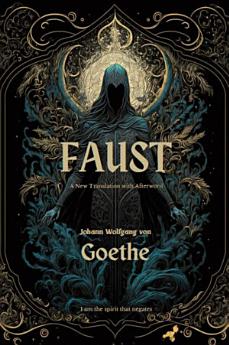Faust
About this ebook
The drama unfolds Faust's despair over intellectual limits, his fateful pact with the devil Mephistopheles, and the ensuing pursuit of sensual gratification, earthly power, and idealized love, culminating in the devastating tragedy of Gretchen; this trajectory serves as a vast canvas upon which Goethe explores philosophy, theology, aesthetics, and the political upheavals of his age with poetic intensity. Its structure, blending lyrical passages, philosophical dialogue, folk scenes, and grand spectacle, along with its complex, ambivalent characters—neither wholly damned nor saved within Part One—secured its position as a cornerstone of world literature, a work perpetually challenging readers to confront the grandeur and peril inherent in the human drive to transcend the given world.
This critical reader's edition offers a modern translation of the original Fraktur manuscript (the old German script) to help curious readers delve into Goethe's works. It uses clear, contemporary language and straightforward sentences to illuminate his complex ideas. The edition includes supplementary material that provides autobiographical, historical, and linguistic context for this eighteenth-century work. This material includes an afterword by the translator that discusses Goethe’s history, impact, and intellectual legacy, as well as an index of the philosophical concepts he explored, with a focus on Romanticism and Classicism. Also included are a comprehensive chronological list of his published writings and a detailed timeline of his life, highlighting the personal relationships that profoundly influenced his philosophy.










